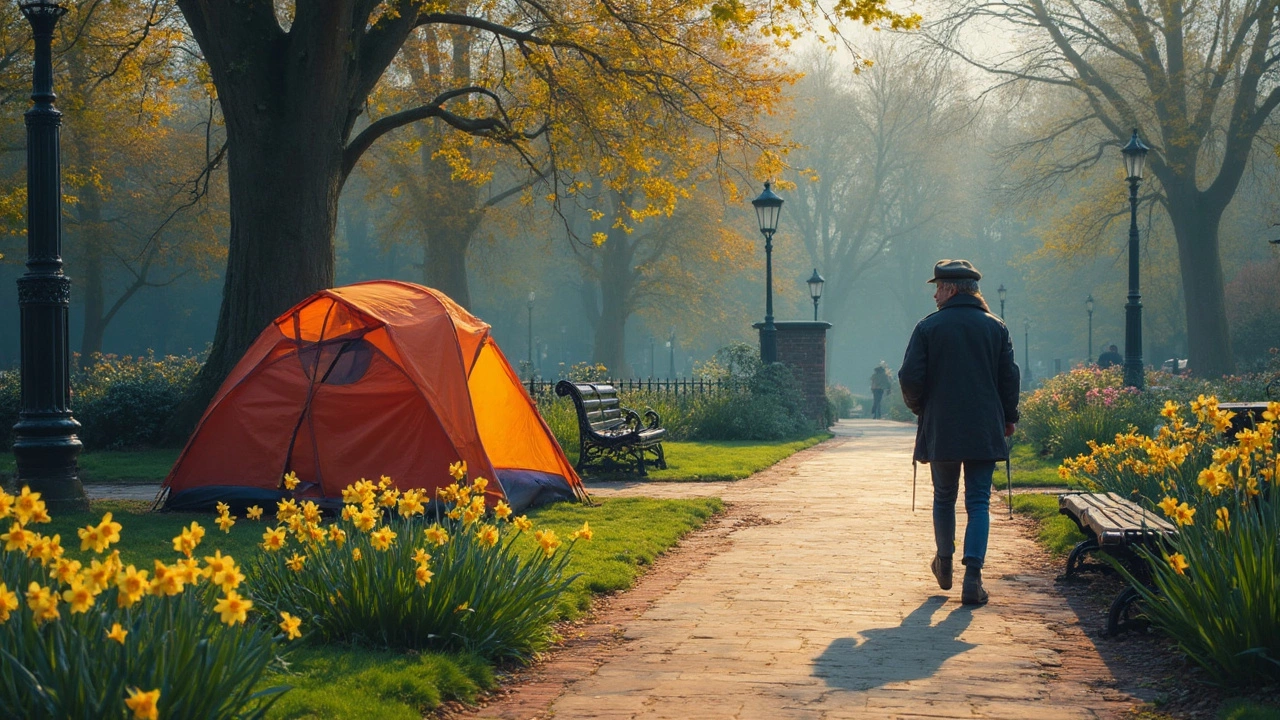
Can You Legally Camp in UK Public Parks? Rules, Risks, and Tips
Curious about putting up a tent in a UK public park? This guide uncovers the laws, risks, and real tips for wild camping in Britain.
Read MoreIf you love the freedom of camping but don’t want to book a traditional campsite, public parks can be a great option. You’ll save money, stay close to nature, and still have basic facilities nearby. The key is knowing the rules, picking the right parks, and respecting the space so you can keep coming back.
Most UK public parks are owned by local councils, and overnight stays are usually not allowed without permission. Before you pitch a tent, check the council’s website or give them a call. Some parks issue a short‑term permit for a night or two, especially if you’re in a motorhome with proper waste disposal.
In England and Wales, the “right to roam” covers wild land, not most parks, so you’ll need that explicit consent. Scotland is more permissive under the Land Reform Act, but it’s still wise to ask the park ranger. If you’re caught camping illegally, you could face a fine or be asked to leave, which ruins the experience.
When you get permission, write down any restrictions – like no open fires, limited vehicle access, or a maximum stay of 48 hours. Having this info handy helps you avoid surprises and shows the council you’re a responsible camper.
Start with parks that already welcome caravans or motorhomes. Larger city parks often have designated “overnight” zones where you can park a motorhome and use mains electricity if it’s available. Examples include Sherwood Forest’s visitor centre and the Peak District’s public car parks that allow overnight stays during off‑season.
Look for parks near transport links – a nearby train station or bus stop makes it easy to stock up on food without driving far. Check online forums like UK Camping and Motorhome forums; campers share updates about which parks are still accepting overnight stays.
Season matters too. In summer, many parks fill up quickly, so book any permits early. Autumn and spring are quieter, and you’ll often find parks that are more relaxed about overnight stays. Just pack warm clothes and a good sleeping bag, because nights can get chilly.
When you arrive, set up your tent away from high‑traffic areas and respect any wildlife nesting sites. Use a portable power station or solar charger if you need electricity – just keep cords tidy and don’t block pathways.
Leave No Trace is simple: take all rubbish home, pack out any food scraps, and avoid damaging grass or trees. If you’re using a portable stove, keep it on a stable surface and extinguish the flame completely before leaving.
Finally, enjoy the freedom. Public parks let you wake up to city views or rolling hills without the crowds of a traditional campsite. Follow the rules, plan ahead, and you’ll have a memorable, low‑cost adventure that fits perfectly into a motorhome holiday across Nottinghamshire and beyond.

Curious about putting up a tent in a UK public park? This guide uncovers the laws, risks, and real tips for wild camping in Britain.
Read More